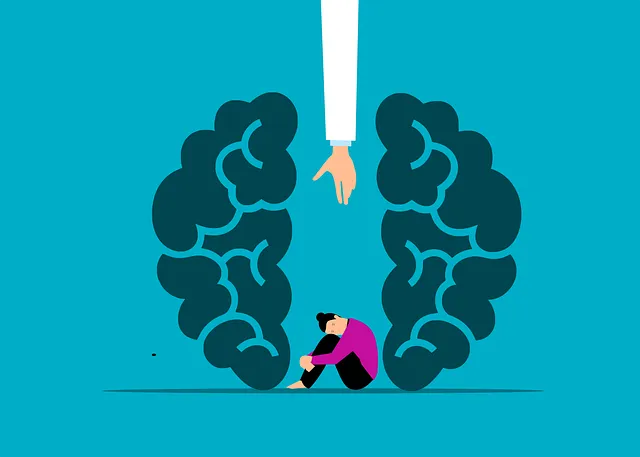Kaiser Permanente Mental Health Colorado Springs leads in crisis intervention by offering comprehensive CIT training. This equips staff with tools to de-escalate high-risk situations, promote emotional well-being, and provide tailored interventions. Their program emphasizes rapid response, collaborative problem-solving, holistic care, self-care routines, mental health policy advocacy, and public awareness campaigns to destigmatize mental illness. Through these multifaceted approaches, Kaiser Permanente becomes a beacon of hope in Colorado Springs' mental health landscape.
“In today’s challenging landscape of mental health care, Crisis Intervention Teams (CITS) emerge as a crucial resource. This article explores the vital role of CITS in addressing acute psychiatric crises, focusing on Kaiser Permanente Colorado Springs—a leading provider of mental health services. We delve into the essential components of effective crisis intervention training programs and highlight their significant impact in real-world settings. By understanding these teams and their training, we can enhance support for those in need.”
- Understanding Crisis Intervention Teams: A Vital Resource in Mental Health Care
- Kaiser Permanente Colorado Springs: A Leading Provider of Mental Health Services
- Essential Components of Effective Crisis Intervention Training Programs
- Benefits and Impact: Real-World Applications of Crisis Team Training
Understanding Crisis Intervention Teams: A Vital Resource in Mental Health Care

Crisis Intervention Teams (CITs) are a vital resource in mental health care, providing immediate and effective support to individuals experiencing a crisis. These teams, often composed of specially trained healthcare professionals, first responders, and community members, are designed to de-escalate high-risk situations and offer evidence-based interventions. At Kaiser Permanente Mental Health Colorado Springs, CIT training programs have been instrumental in equipping staff with the skills needed to handle diverse mental health emergencies.
By fostering positive thinking and promoting emotional intelligence, these programs emphasize the importance of rapid response in mitigating the effects of anxiety relief and preventing escalation. The CIT model encourages collaborative problem-solving, ensuring that individuals in crisis receive holistic care tailored to their unique needs. This proactive approach not only enhances patient safety but also contributes to building resilient communities where emotional well-being is prioritized.
Kaiser Permanente Colorado Springs: A Leading Provider of Mental Health Services

Kaiser Permanente Colorado Springs stands as a beacon of hope and expertise in mental health services within the region. As a leading healthcare provider, they have dedicated significant resources to ensuring comprehensive care for individuals grappling with various mental health challenges. Their crisis intervention team training programs are renowned for their intensity and effectiveness, empowering medical professionals to handle crises with compassion and proficiency.
The organization’s commitment extends beyond clinical excellence. They actively promote Self-Care Routine Development for Better Mental Health through community initiatives and educational campaigns. Moreover, Kaiser Permanente advocates for Mental Health Policy Analysis and Advocacy, pushing for systemic changes that improve access to mental health services. Their efforts also encompass Public Awareness Campaigns Development, aiming to destigmatize mental illness and encourage open conversations about mental well-being.
Essential Components of Effective Crisis Intervention Training Programs

Effective crisis intervention team training programs are meticulously crafted to equip professionals with the skills and knowledge needed to navigate high-pressure situations. These programs, often pioneered by organizations like Kaiser Permanente mental health Colorado Springs, integrate essential components designed to foster competent and compassionate responses. One key element is the Mind Over Matter Principles, which focus on promoting resilience and emotional regulation among team members. By enhancing their own mental health awareness, crisis intervention teams can better support individuals in distress.
Moreover, these training programs emphasize Inner Strength Development. They encourage participants to cultivate self-awareness, empathy, and effective communication skills. Mental Health Awareness is another cornerstone, ensuring that team members understand the nuances of various crises and the importance of tailored interventions. Through interactive exercises, role-playing scenarios, and evidence-based practices, crisis intervention team training equips individuals with the tools to make a real difference in people’s lives during moments of severe emotional turmoil.
Benefits and Impact: Real-World Applications of Crisis Team Training

Crisis intervention team training programs play a pivotal role in equipping individuals and communities with the skills to handle mental health crises effectively. One notable example is Kaiser Permanente’s mental health services in Colorado Springs, which has witnessed significant benefits from such initiatives. These programs foster Inner Strength Development by providing participants with practical tools to support those experiencing emotional distress. Trained team members can recognize early warning signs, de-escalate situations, and offer immediate assistance, potentially preventing more severe outcomes.
The real-world applications of crisis team training are vast. It empowers individuals to become active bystanders who can intervene in a supportive manner. In communities with limited access to mental health resources, these trained teams can bridge the gap, ensuring that help is readily available. Moreover, such programs encourage positive thinking and resilience, enabling participants to approach crises with calmness and clarity, ultimately contributing to improved outcomes for those at risk.
Crisis intervention team training is a transformative resource, as evidenced by programs like those offered at Kaiser Permanente Colorado Springs. By equipping professionals with the necessary skills and knowledge, these training initiatives enhance the quality of mental health care, ensuring swift and effective support for individuals in crisis. Through comprehensive curriculum covering key components such as risk assessment, de-escalation techniques, and cultural competency, participants gain practical tools to make a tangible difference in their communities. The benefits extend far beyond the training hall, fostering safer environments, improved patient outcomes, and enhanced resilience among both care providers and those they serve.






